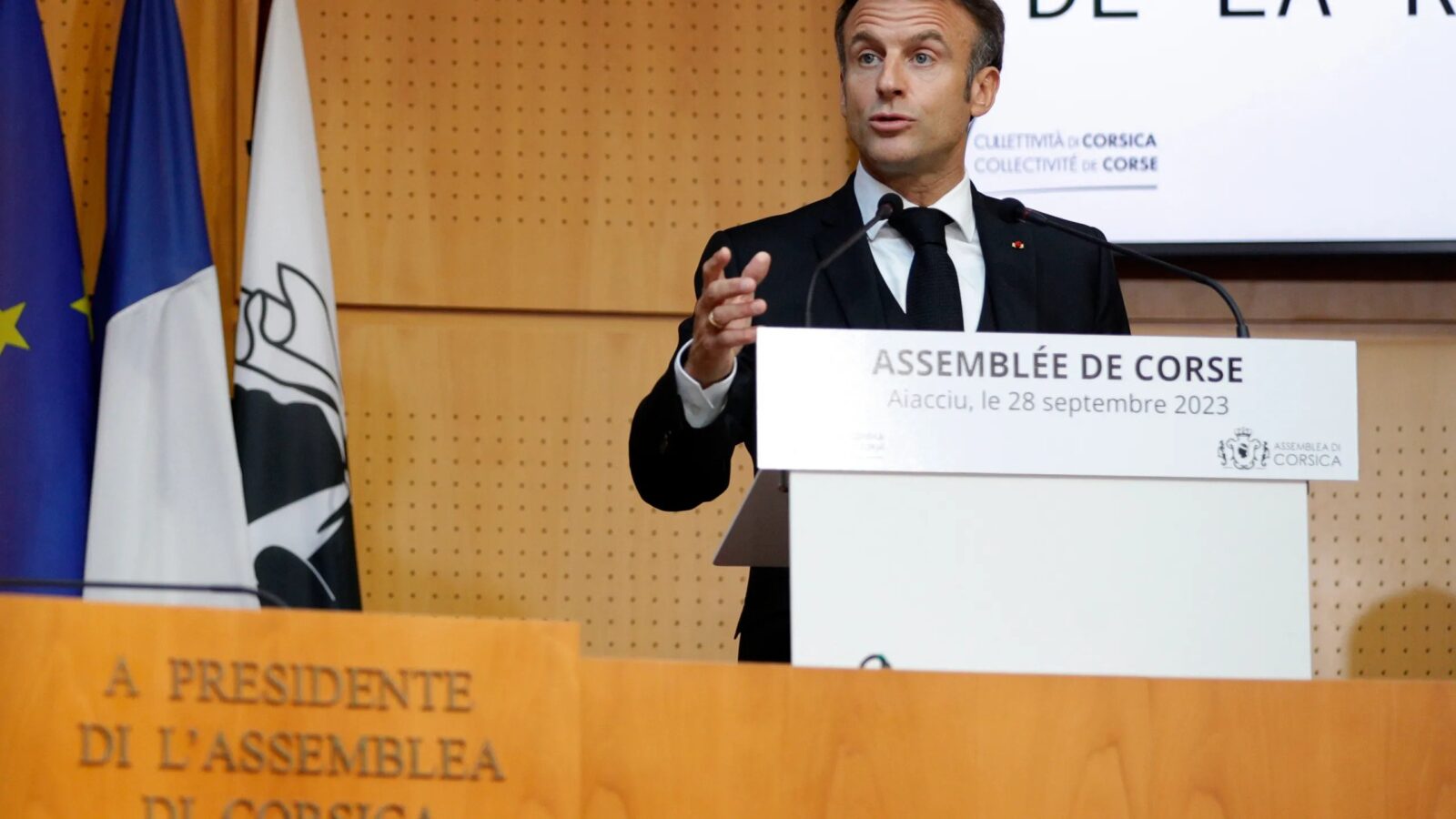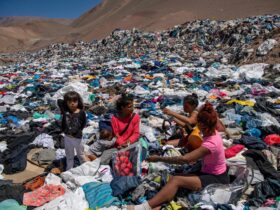This past month, French President Emmanuel Macron made a visit to the French territorial collectivity of Corsica where, in an address to the local government, he openly endorsed greater autonomy for the island. The purpose of Macron’s visit was honoring the 80th anniversary of Corsica’s liberation from Italian and German occupation during World War II. While on the French-governed Mediterranean island, Macron gave an address to the local assembly in Ajaccio, Corsica’s capital, specifically addressing Corsica’s classification as a French territorial collectivity before an assembly largely composed of Corsican nationalists, who call for greater autonomy for their land and people.
Macron is now the first French president in history to openly endorse Corsican autonomy, saying in his address, “Let us have the audacity to build a Corsican autonomy within the [French] Republic.” In 2022, French officials began discussing potentially granting Corsica greater autonomy after the death of a prominent nationalist figure, Yvan Colonna. Colonna had been imprisoned for killing Claude Erignac, a top French government official stationed in Corsica, in 1998. However, since then, not much has changed for the island. Macron’s words are therefore poised to open the issue up to debate once more.
However, rather than promoting unconditional autonomy for Corsica, Macron’s speech was more nuanced in its message. The French President made it clear that the potential new rights being given to Corsica will only be granted conditionally. The island will “not be [granted]autonomy against the state, nor autonomy without the state.” Currently Corsica is classified as a “territorial collectivity,” meaning the nation has its own assembly elected by Corsican people which is able to legislate on local affairs. However, the French government still has ultimate control. Although the official status of the island may be changed with the Corsican people being more powerful over their own land, that power only extends until they attempt to separate or go against France.
Macron’s words are a step in the right direction, but it is only one story in the long history of Corsica’s nationalist movement for greater rights from France. The island has its own unique language and culture separate from the mainland French population. In fact, much of Corsican culture, especially its language, is more closely aligned with Italian traditions. This is due to the long period of control by the Republic of Genoa from the 13th-18th centuries before the French became in control. One of the main demands of nationalists today is the equal emphasis in education to the Corsican and French languages.
The uniqueness of Corsican culture has generated widespread nationalist sentiment throughout the nation, particularly over the last 40 years. Some argue for more autonomy for the island, such as greater control over the economy and the island’s governance, while separatists call for a complete separation from the French.
One of Corsica’s most notable separatist groups is the Corsica National Liberation Front or FLNC, a violent, nationalist political organization formed in 1976, a year which marked the beginning of the Corsican conflict between this group and French militarints. The FLNC is a separatist organization which believes in a complete severing of their land from French control. Since the 1980s, the group has claimed responsibility for hundreds of bombings, particularly targeting buildings and homes owned by non-Corsican settlers, who the FLNC believed were representations of the continued presence of outsiders on their land. This period of armed resistance was marked by guerilla tactics, including assassinations of political figures, such as Claude Erignac. However, the group officially ended its use of violence for political means in 2014.
This shift in ideology came after the Corsican assembly passed a few major separatist demands, including establishing Corsican as a co-official language alongside French. Also passed was a mandatory minimum five-year residency requirement in order to be able to purchase property, as well as an amendment to the French constitution which could open the door to greater administrative authority in Corsica.
However, many Corsicans felt that these accomplishments were unlikely to become a reality. The demands which had been granted by the Corsican assembly would then have to be passed by the French government in a constitutional amendment. At the time, France was still unwilling to discuss conditions of a more autonomous Corsica. So, although armed resistance stopped, the demands of nationalists were never fulfilled.
In response to this popular discontent, a political alliance known as Pe a Corsica (For Corsica) formed in 2015 when separatist group Corsica Libera joined with the more moderate pro-autonomy group, Femu a Corsica (Let’s Make Corsica). This alliance enjoyed electoral success immediately after its founding until it was dissolved following the 2021 elections due to dissension within the group.
In 2015, Pe a Corsica won more than 35% of the vote, approaching a majority in the local authority council by winning 24 of 51 seats. The leader of the alliance, Gilles Simeoni, former mayor of Bastia and lawyer for Yvan Colonna, was elected the president of the executive council of Corsica. Later, in 2017, Pe a Corsica accumulated more seats, winning 56.5% of the votes in the second round. It is clear that nationalist sentiment remains strong among the Corsican people, including in the last election in 2021 with the percentage of pro-autonomy control rising to 57.7%.
Yet despite Pe a Corsica’s control over the local assembly, not much progress was actually made in terms of Corsican rights because the assembly’s control over legislation is limited by the French government. In 2019, revision to the French Constitution fell through which would have upgraded Corsica’s status to a “Special Status Community,” granting greater rights of self-legislation to Corsicans, a fact which some French governmental officials worried would weaken the French parliament.
Following the death of prominent separatist leader Yvan Colonna in 2022, Corsica saw large protests, as people took to the streets blaming the French government for his death. These protests were especially inspired by Colonna’s role as a major figurehead for the Corsican nationalist movement. After Colonna was arrested for the assisination of Claude Erignac, he was imprisoned on the French mainland as a political prisoner. However, many protestors believed that Colonna should be moved to a prison in Corsica. The French government only agreed to the demands after Colonna had been seriously injured from the incident, later dying from these injuries. Protests ramped up after Colonna’s death, arguing that this failure to listen to the demands earlier on led to his death. Protestors adopted the slogan “Statu Francese Assassinu” (The French State is an Assassin), and took to the streets to argue for their island’s rights.
Despite opportunities for change, including the 2019 amendment to the French constitution, the French government has stood in the way, leading Corsicans to remain frustrated with the lack of progress. Macron may have promised to reopen the conversation over Corsica’s status; however, the island’s future remains uncertain. Corsican autonomy has been a taboo subject for the French government despite the over 50 year long history of nationalist movements on the island. Through understanding this historical context we can hope to see a change in the relationship between Corisca and France, a change that according to Macron, may be coming very soon.







